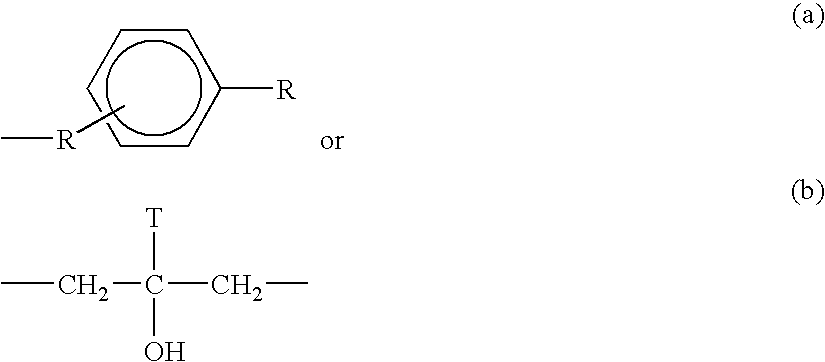Thermal recording material and thermal recording label
a technology of thermal recording and recording label, which is applied in the field of thermal recording material, can solve the problems of poor transportability of thermal recording label printers, deterioration of image density and stability, and prone to stick of thermal recording materials, and achieves good high-humidity transportability and less abrasion of thermal heads
- Summary
- Abstract
- Description
- Claims
- Application Information
AI Technical Summary
Benefits of technology
Problems solved by technology
Method used
Image
Examples
example 18
[0218]An adhesive layer was formed on the backside of the thermal recording material prepared in Example 17 to prepare a thermal recording label.
example 19
[0219]A thermal adhesive layer was formed on the backside of the thermal recording material prepared in Example 17 to prepare a thermally-adhesive thermal recording label.
example 20
[0220]The protective layer of the thermal recording label prepared in Example 18 was printed with an UV cure ink RNC ink from T&K TOKA CO., LTD. to prepare a pre-printed thermal recording label.
[0221]The thermal recording label, thermally-adhesive thermal recording label and pre-printed thermal recording label prepared in Examples 18 to 20 respectively had the same properties as those of the thermal recording material prepare in Example 17.
PUM
| Property | Measurement | Unit |
|---|---|---|
| particle diameter | aaaaa | aaaaa |
| average particle diameter | aaaaa | aaaaa |
| average particle diameter | aaaaa | aaaaa |
Abstract
Description
Claims
Application Information
 Login to View More
Login to View More - R&D
- Intellectual Property
- Life Sciences
- Materials
- Tech Scout
- Unparalleled Data Quality
- Higher Quality Content
- 60% Fewer Hallucinations
Browse by: Latest US Patents, China's latest patents, Technical Efficacy Thesaurus, Application Domain, Technology Topic, Popular Technical Reports.
© 2025 PatSnap. All rights reserved.Legal|Privacy policy|Modern Slavery Act Transparency Statement|Sitemap|About US| Contact US: help@patsnap.com



